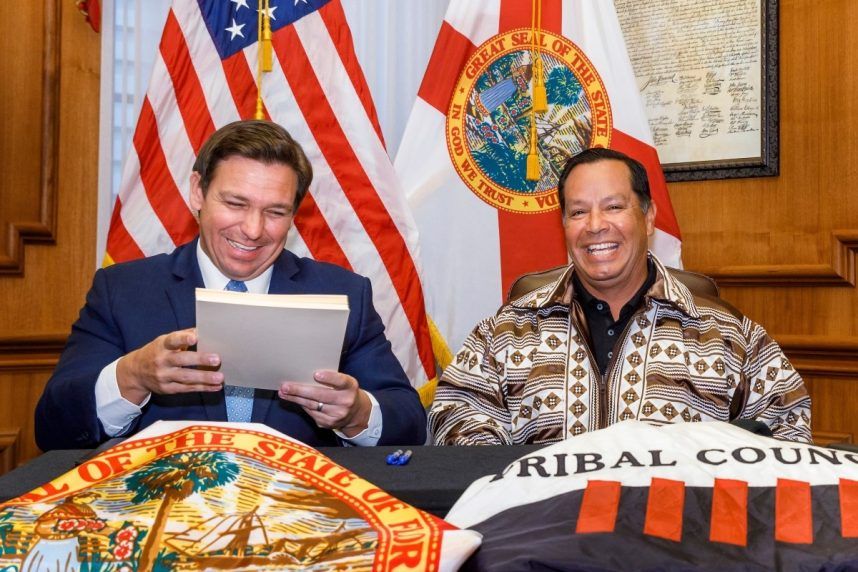Outcome of Seminole Gaming Compact Could Lead to iGaming Push in Florida

The landscape of online gambling in Florida is poised for potential transformation, with a favorable US Supreme Court decision holding the key to unlocking new opportunities for the Seminole Tribe.
Recent developments, including legal challenges and statements from key industry players, shed light on the dynamics shaping the future of online gaming in the state. At the center is the Seminole Tribe’s strategic maneuvering in response to legal hurdles and regulatory uncertainties.
Jim Allen, chairman of Hard Rock International and CEO of Seminole Gaming, has expressed interest in expanding the tribe’s gaming operations to include online casinos. However, this endeavor hinges on the resolution of legal challenges, particularly regarding the tribe’s compact and the outcome of a pending Supreme Court case initiated by West Flagler.
Allen’s strategic vision illuminates the importance of regulatory clarity and political engagement in advancing the tribe’s objectives. His emphasis on the need to navigate complex regulatory frameworks and engage in political dialogue reflects an awareness of the multifaceted nature of the regulatory process in Florida.
The historical context of the Seminoles’ compact negotiations with Gov. Ron DeSantis provides insight into the tribe’s longstanding interest in expanding its gaming operations.
Despite initial opposition and the removal of iGaming language during legislative sessions, minimal changes are required in the compact for the Seminoles to add online casinos, paving the way for a streamlined regulatory process.
The Seminoles’ operational presence in New Jersey through Hard Rock Bet demonstrates their capabilities in managing online gambling operations and navigating regulatory frameworks.
Allen’s reference to data showing increased engagement with legal platforms further underscores the competitive advantages of legal online gambling platforms over illicit operators.
Despite past opposition, there appears to be a growing potential for collaboration between the Seminoles and other gaming companies. Allen’s willingness to work with industry rivals reflects a pragmatic approach to advancing the tribe’s interests while promoting market growth and innovation.
However, uncertainties remain regarding the integration of commercial operators into the online sports betting market, pending legal outcomes.
The Seminole Tribe’s strategic vision, coupled with proactive engagement with stakeholders, could pave the way for a more inclusive and competitive online gambling market in the state. The coming months will be critical in shaping the trajectory of online gaming in Florida.
- Other news categories:
- SlotsUp's news



